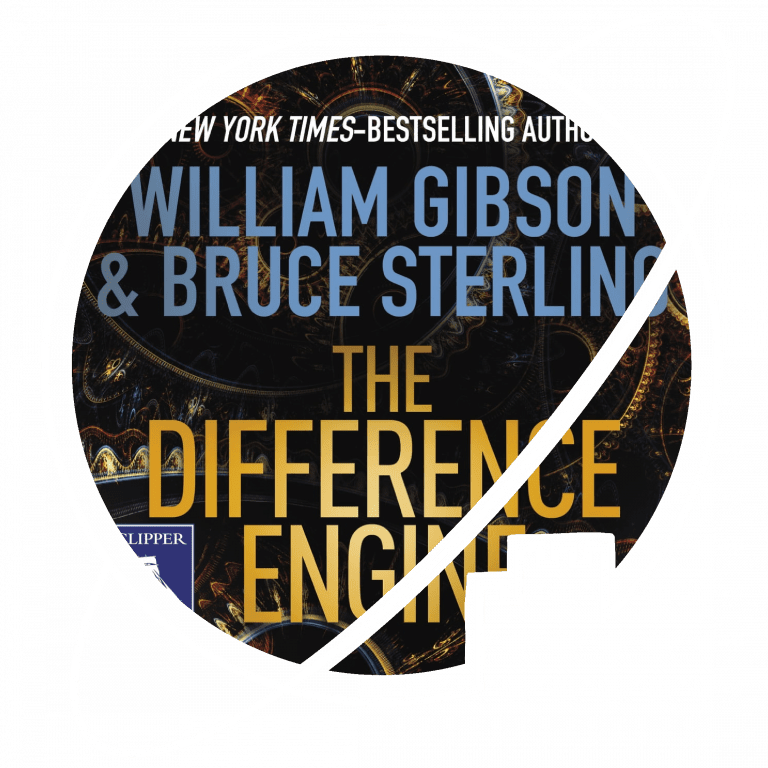- Book written by William Gibson & Bruce Sterling
- Published in 1990
- Standalone
Set in a masterfully crafted alternative 1855 in which Great Britain is run by radical industrial reformers and mechanical computers, The Difference Engine follows a set of diverse characters each chasing a mysterious set of punch cards: a working girl getting mixed up with American revolutionaries, an esteemed paleontological savant who just returned to Londen after an expedition to far-off Wyoming, and a secret agent with Japanese ties.

The Difference Engine was recommended to me on Reddit after I uploaded my review of William Gibson’s Neuromancer and remarked how fundamental that book was to the cyberpunk genre. The Difference Engine, I was told, was supposedly the same, except for steampunk, which (obviously) made me curious straight away. I was not disappointed. After some googling, I don’t think The Difference Engine stands at the cradle of the steampunk genre the same way Neuromancer does with cyberpunk, but the book certainly captures the spirit of the steampunk genre in a way that I haven’t before encountered in print – though admittedly I haven’t found a lot of steampunk novels, so feel free to recommend your favourites.
The Difference Engine is a collection of interconnected novellas set in an alternative history version of the London of 1855, in which Britain is ruled by a coalition of Radical reformers who have pushed the Conservative government out of power and installed a regime that has pushed for rapid industrialisation. Scientists and inventors of all different disciplines called ‘savants’ are installed as lords. The bureaucracy of this new Britain runs on difference engines, room- or even building-sized whirling mechanical computers that record data on punch cards.
The steampunk alternative history worldbuilding in this novel is absolutely phenomenal. I love that the novel makes an actual effort to have its steampunk setting fit into our real world, and has worked out a more or less believable timeline to get to the world it wants to present (as opposed to just ‘sticking a gear on it’ and calling it a day). I recognised a lot of real world names (and I probably missed a lot more), and every time the authors mention a poet as a proto-cinema director or prime minister, you can’t suppress a smile.
The actual stories set in this amazing world are enjoyable, though some more so than others; I have to admit that I didn’t really stick with the novel for the central mystery (which forms the red thread connecting the separate stories), but rather for the world, and for discovering tidbits about its (alternative) history. I really liked the variety of characters that the authors picked, giving you a number of different perspectives on the novel society it presents, though the limited time spent with each means that none of them attain the depth I know some of our other curators particularly like.
As a result, I really enjoyed The Difference Engine, but I am recommending it mostly to people interested in reading a novel set in a fascinating steampunk alternative universe, and maybe not so much to people looking for an absolutely thrilling plot or characters to fall head over heels in love with.






